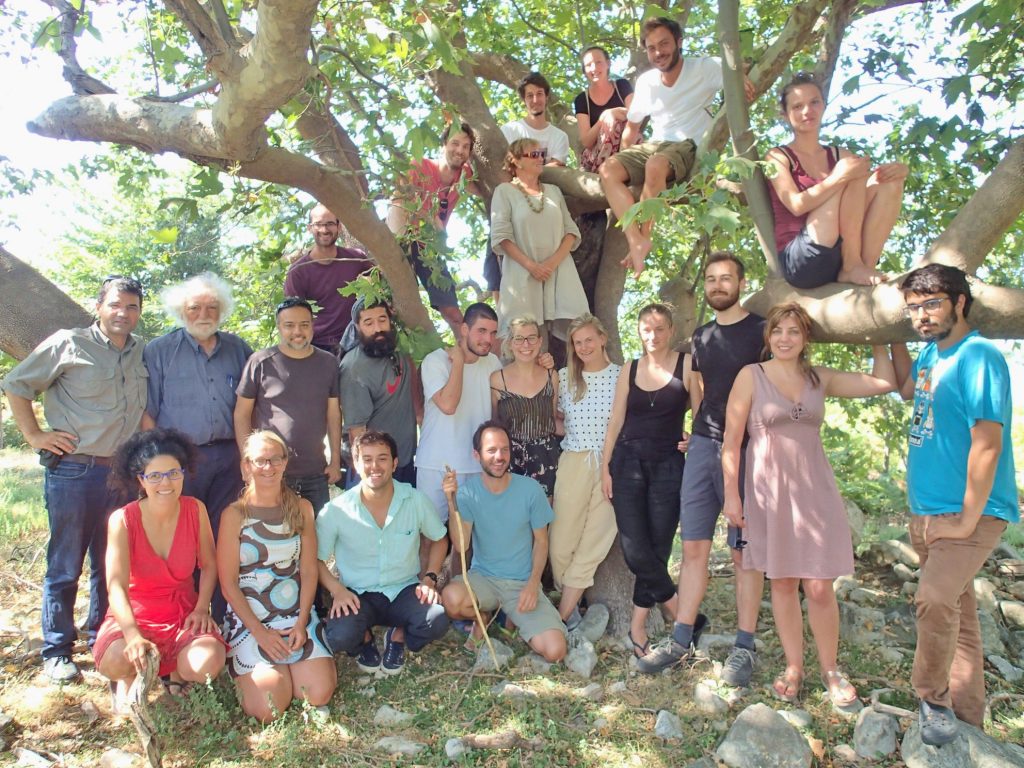
Between 3-12 June, the 5th Summer School on “Aquatic and Social Ecology” will be took place on Samothraki Island, hosted by the the Hellenic Centre for Marine Research (Athens), in collaboration with the Institute of Social Ecology (Vienna).
Theoretical input will be provided by several members of the research consortium presenting different aspects of current and future research undertaken on the island. Confirmed speakers include: Prof. Marina Fischer-Kowalski (Vienna Institute of Social Ecology, Alpen Adria University), Dr. Nikolaos Skoulikidis (Research Director, Institute of Marine Biological Resources and Inland Waters, Hellenic Centre for Marine Research, Greece), Dr. Simron Singh (Associate Professor, Faculty of Environment, University of Waterloo, Canada), Dr. Marjan Jongen (Forest Research Center, Instituto Superior de Agronomia and Department of Mechanical Engineering, Instituto Superior Técnico) – (More TBA!).
For the most part, students will then be split in small groups and conduct fieldwork in an array of social and natural science methods frequently used in socioecological and aquatic research. Five modules will be performed in parallel, each consisting of an information block, participating field research, data analysis and reporting. Each method will be practically demonstrated by a tutor guiding the small student groups throughout the field work. Each student participant will focus on one of the following methods and research questions:
- Landscape assessment in an insular protected area. This module will: a) apply landscape assessment through field surveys and use of questionnaires, and b) assess landscape integrity particularly from proposed wind farms within the protected area (Samothraki Natura 2000 sites). Methods will include an analysis of cultural landscape attributes and cultural ecosystem services framework (Tutors: Vasiliki Vlami, Stamatis Zogaris)
- Coastal morphodynamics of Samothraki and management of anthropogenic activities using the principles of Integrated Coastal Zone Management (ICZM): Coastal morphodynamics through a holistic view including land area and submarine zone will be surveyed. Field observations and in situ measurements as well as data analyses will be carried out. Moreover the module will attempt to integrate anthropogenic activities and coastal areas mainly using the adaptation principle (Tutor: Christos Anagnostou)
- Hydrometeorological investigations and monitoring infrastructure for adaptive water management: The aim of the module is to present ways of hydrometeorological investigations through installation of automatic monitoring stations and use of models that can provide important information about the optimization of water resources management plans. Meteorological and hydrological equipment will be presented and installed in a case study area while the role of the atmospheric forcing and topography on the local water and energy cycle will be discussed. Optimization of existing or future water management plans will be attempted by considering socioeconomic and climate change scenarios (Tutors: Anastasios Papadopoulos, Ilias Dimitriou, Nikolaos Skoulikidis)
- Sustainable livestock farming: The small ruminant population on Samothraki reached unprecedented levels during the 1990s, causing widespread overgrazing and erosion. Still today, livestock numbers by far exceed sustainable levels and impede a recovery of the local ecosystems. In this module, we will engage in a dialogue with local small ruminant farmers to learn more about the reality of their everyday lives, opportunities and obstacles for more sustainable farming practices. With help of our local partners we will arrange interviews with farmers to collect socio-metabolic and qualitative data that contribute to ongoing research efforts (Tutor: Dominik Noll)
- Energy metabolism: How much energy does Samothraki need, and where does it get it from? In this module we will provide a set of existing statistics and previous research results. The task for the students will be to integrate those data into meaningful information and to complement them with estimates on missing parameters (such as fuelwood use for heating etc) by interviews with local experts and possibly a few sample households (Tutors: Simron Singh, Marina Fischer-Kowalski)
Technical Report